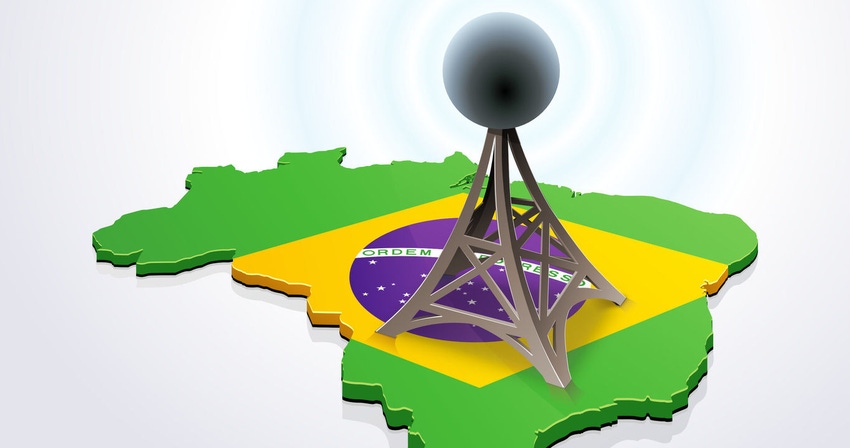Brazil is finally losing one of its big four mobile operators, with Oi having agreed a deal that will split its mobile assets between major rivals TIM, Telefonica and America Movil's Claro.
December 15, 2020

Brazil is finally losing one of its big four mobile operators, with Oi having agreed a deal that will split its mobile assets between major rivals TIM, Telefonica and America Movil’s Claro.
The trio were declared the winners at Monday’s assets auction after theirs was the only bid lodged. Thus Oi’s mobile business is sold for 16.5 billion reais (US$3.2 billion). And due to the competitive landscape in the market, TIM will pay the biggest share of the bill and pick up the most assets.
The financial structure of the deal is complex, but essentially TIM will pay around BRL7.3 billion, Telefonica BRL5.5 billion, and Claro 3.6 billion.
TIM will snap up 14.5 million customers, or 40% of Oi’s base as calculated using Anatel’s figures for April this year, 49 MHz of spectrum – that’s 54% of Oi’s total amount – and 49% of its mobile sites, which equates to around 7,200 locations.
When splitting the customers between the three, “the allocation took into consideration criteria that favour competition among the operators present in the Brazilian market,” TIM noted, while sharing out the spectrum was based on limits established by the regulator. Basically, TIM is able to acquire more of Oi, because its position in the market is the weakest.
Anatel’s latest numbers show that TIM’s market share was 22.3% in October, just ahead of Oi which claimed 15.9%, while Claro (excluding Nextel) and market leader Telefonica’s Vivo had 25.2% and 33.6% respectively.
Accordingly, Telefonica picked up 10.5 million or 29% of Oi’s customers 2,700 mobile sites in the deal, while Claro took 32% of the customer base and 4,700 sites. Telefonica acquired 43 MHz of spectrum, but none was available to Claro.
All three operators talked up the value of the deal to their respective companies – and, of course, to shareholders – as well as the benefits to the Brazilian market as a whole. It’s tempting to a adopt a “well, they would say that” stance, but, as unlikely as it may sound in a market of more than 200 million people, Brazil’s telcos could use some more scale. Economic pressures and the upcoming cost of 5G licensing – the delayed spectrum auction is set to be a big one – mean the telcos need all the help they can get.
The deal will also bring some certainty to the market.
Speculation over a shakedown in Brazil dates back the best part of a decade, with endless rumours over the exit of one of the main players – Oi and TIM were the companies most often named on that score – or a merger between one or more of the big four. The focus channelled to Oi, which entered judicial reorganisation following a bankruptcy protection filing in mid-2016, and earlier this year the debate really came to a head when Oi selected the other three telcos for exclusive talks and later conferred stalking horse status on their bid.
There are a number of regulatory hurdles to overcome before the three telcos get their Oi mobile shares though, including gaining the approval of telecoms regulator Anatel and antitrust body the Conselho Administrativo de Defesa Econômica (CADE).
The telcos expect the deal to close next year, subject to those regulatory requirements.
About the Author(s)
You May Also Like








.png?width=300&auto=webp&quality=80&disable=upscale)


_1.jpg?width=300&auto=webp&quality=80&disable=upscale)


.png?width=800&auto=webp&quality=80&disable=upscale)